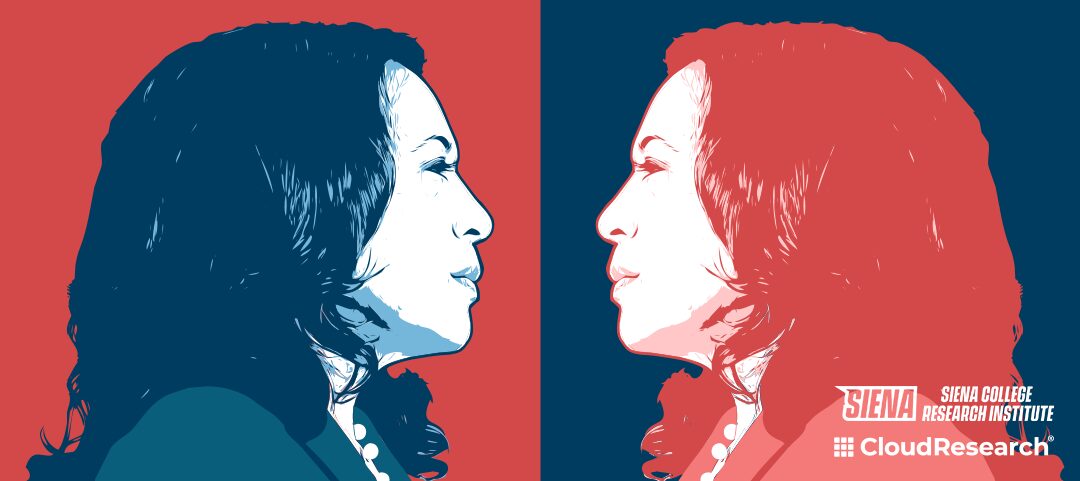What is the Deciding Factor for Undecided Voters? A View from the Left, Right, and Center

Understanding Undecided Voters: Insights from a Longitudinal AI-driven poll.
As the election approaches, political analysts are continuing to focus on undecided voters, a group that will likely tip the scales in a very tight presidential race. How will these undecideds make up their minds? What is most important to them? To better understand their motivations and concerns, we used our AI-driven survey tool, Engage, to have in-depth conversations with 2,000 undecided voters over a six-week period. On October 30th, we focused on a sample of over 400 participants to dive deep into what truly drives their indecision. While undecided voters are often viewed as a monolithic group who are politically unengaged, we uncovered the diversity of the undecided voter using AI-powered interviews. By exploring the distinct motives and concerns of left-leaning, right-leaning, and centrist undecided voters, our research offers a more textured picture of the various reasons behind voter indecision and highlights key insights into this crucial group.
Our initial findings were shared by CBS News.
Here’s what we found.
Half of Undecided Voters Remain Undecided
Half of the voters (53%) who were undecided six weeks ago remain undecided less than a week from election day. The other half of voters who now have identified the candidate they intend to vote for are split between Team Trump and Team Harris. As Trump and Harris continue to campaign across the US, how can they best sway remaining undecided voters to join their team?

Persistent Indecision Across Ideological Lines
Our in-depth interviews revealed that, while undecided voters share uncertainty, their reasons vary significantly based on their ideological leanings.
Left-Leaning Undecideds: These voters often hesitate to support Kamala Harris due to concerns about her authenticity and alignment on key issues. Some expressed dissatisfaction with Democratic stances on foreign policy and social justice, citing specific grievances. For example, a 25-year-old Black woman from Indiana remains undecided because “The genocide in Gaza and the recognition of islamophobia as an actual issue to Democrats, as well as the acknowledgment of Palestinian humanity.” Overall, they seek reassurances that their chosen candidate can authentically address critical concerns, particularly surrounding healthcare, abortion rights, and economic inequality.

Right-Leaning Undecideds: For right-leaning voters, the dilemma often stems from frustration with Donald Trump’s character, but they generally alight with his policies. While they support conservative approaches to the economy and immigration, concerns about personality and representation lead to hesitation. As a 49-year-old White woman from Washington put it, “Trump is horrible and embarrassing. I’d only vote for him because of his position on economic policies.” In our interviews, we also had voters participate in voice-to-text online conversations on Engage. Listen in to hear more about what a right-leaning undecided voter had to say about his personal indecision:

Centrist Undecideds: Centrists face significant trade-offs with both candidates. They are drawn to Harris’s perceived empathy and focus on social issues but worry about economic policies. Conversely, Trump’s approach to the economy appeals to some but is overshadowed by concerns about trustworthiness and stability. Many expressed frustration with the limited choices and a desire for more authentic and transparent leadership. A 52-year-old White man from Michigan weighs the pros and cons of each candidate: “Neither strikes me as honest. Compassion for others is huge, and I’d give Harris the nod there. Caring for the average American is paramount, and again I’d give the edge to Harris. I think Trump is superior with foreign policy.”

What It Will Take to Win Over the Undecided Voter?
So, what actions should the Harris and Trump campaigns take to continue winning over undecided voters? Based on our interviews with formerly undecided voters who have now made up their minds, it’s clear that different factors need emphasis when appealing to right-leaning versus left-leaning undecided voters:

Many undecided voters ultimately decided to support a candidate despite their reservations. Among those who chose Harris, 87% did so simply because she is not Trump, while 67% of those who chose Trump did so because he is not Harris. While candidates cannot change who they are, they can employ other strategies to win over undecided voters.
To appeal to left-leaning undecided voters, our data suggest that candidates need to continue to highlight their character and leadership ability. The key for Harris, however, is to clarify her policies and economic positions which many felt are not presented in sufficient enough detail to win them over. To appeal to right-leaning undecided voters, Donald Trump needs to convince the voters he has the character worthy of the presidency, as this is key factor holding right-leaning undecided voters from supporting him.
As Election Day draws near, the choices of undecided voters will profoundly shape the future of the United States. Engage’s AI-powered interviews reveal that these voters are far from politically unengaged or uniform. Instead, they face complex decisions influenced by diverse motivations.
About CloudResearch
CloudResearch is an online platform that connects researchers with more than 100 million research participants worldwide. CloudResearch provides tools to carry out complex online projects and polls for the academic, public, and private sectors. Engage is CloudResearch’s latest research innovation, using AI to combine the power of traditional and conversational surveys at scale cloudresearch.com.
Contact: Leib Litman, PhD, CloudResearch, Chief Research Officer. leib.litman@cloudresearch.com
In-Depth Voter Interviews: Insights from AI-Driven Polling
To provide more insight into what Engage is and how it works, our research team at CloudResearch has selected interview transcripts that stood out to us.
64 year old Hispanic man, Independent, Florida
28 year old White woman, Independent, Colorado
57 year old White man, Independent, Wisconsin
43 year old Mixed-race woman, Independent, Pennsylvania
46 year old White man, Independent, Georgia
35 year old White man, Independent, Louisiana
37 year old White man, Republican, North Carolina

